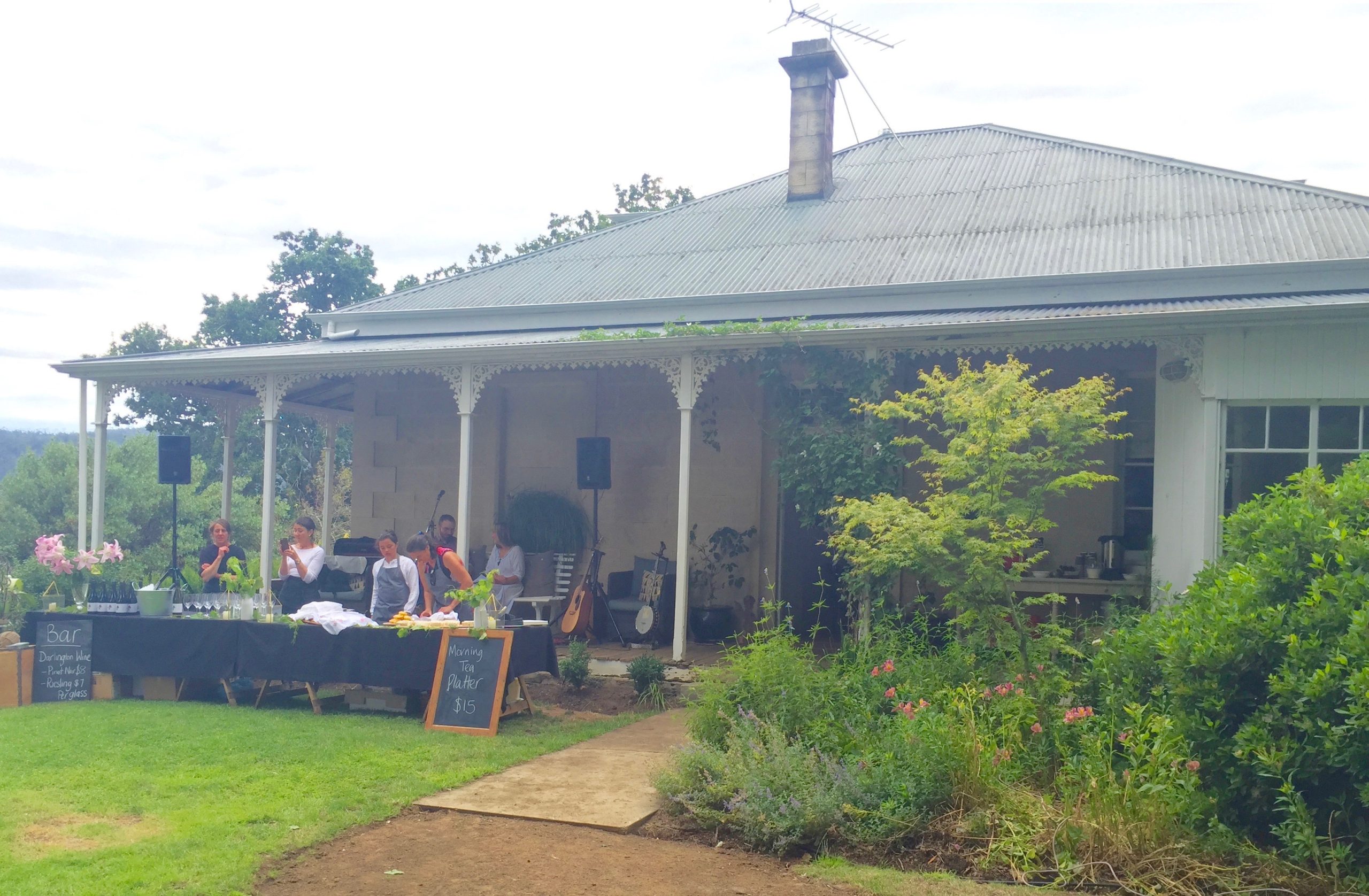“Black Charlie’s Opening” says the sign on the road towards Buckland and Twamley Farm. What th’? I almost run off the road. If there was a Black Charlie, was there a white Charlie? Did whoever named that pass through the mountains have a wicked sense of humour? I think so, because I suddenly spy “Break-me-neck bend” and “Bust-me-gall Hill”.
If you’re visiting, or even a local who takes all this for granted, may I suggest you make the trip towards Buckland and find Twamley Farm. Even the journey to the destination is funny, quirky, and beautiful, all at once.
And sometimes, you come across a place that’s so exquisite your heart just skips a beat. It’s almost a little internal jump for joy. As I turned into Twamley Farm, just outside Buckland in rural Tasmania, I had to stop the car and just stare.
I took in bucolic, rolling countryside with an old shearer’s quarters and shed at the top of the hill, with TWAMLEY FARM painted proudly on the roof.
Feel the serenity! The road in is dusty, and as I turn into the main gate and heart of the property, the house almost bids me welcome with sandstone block converted stables beside it.
It’s really a fluke that I’m here at all. A dear friend, Alwyn Lewis, who writes plays and is active in promoting the arts, has organized an afternoon concert, with acclaimed actor David Tredinnick over from Melbourne reading from the diary of an early settler. There’s an a capella choir performing, and singing one of Alwyn’s husband’s songs. Laurie is now retired, but still busy composing and writing wonderful music.
The concert, under ancient oaks that bring shade and comfort, was a treat. It begins with the arrival of Louisa Anne Meredith, a direct descendant and namesake of the lady whose diary David is reading today. The diary is warm, witty and funny, and read by one of our world-class actors in such an intimate setting, comes to life with vigour. With a home-made afternoon tea, and a trip through the farmhouse after, this day, spent in the country, was special.
The two Turvey sisters, Elizabeth and Angela, combine to make Twamley a haven of calm and respite for tourists, weary of the contrivance of a lot of tourist destinations.
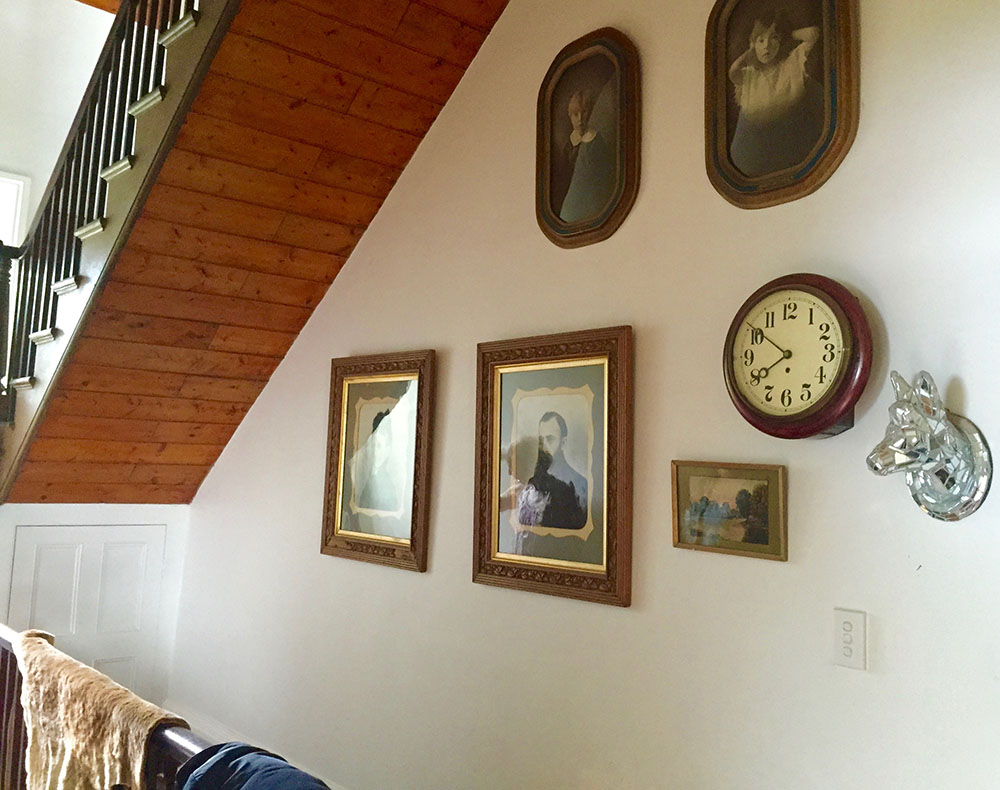
Turveys
One of Tassie’s oldest working farms, Twamley has been in the same family, the Turveys, for six generations. Six! That’s love of the land, hard work and longevity rolled into one gorgeous package.
The first Turvey, John, a convict who was brought to Buckland in 1823, became a free settler and was granted the property in 1829. The son Frank, and his wife Elizabeth bought the property from the old man in 1874. John’s grave is in a corner of the farm cemetery, so his bones can rest easy that his beloved land is in good hands.
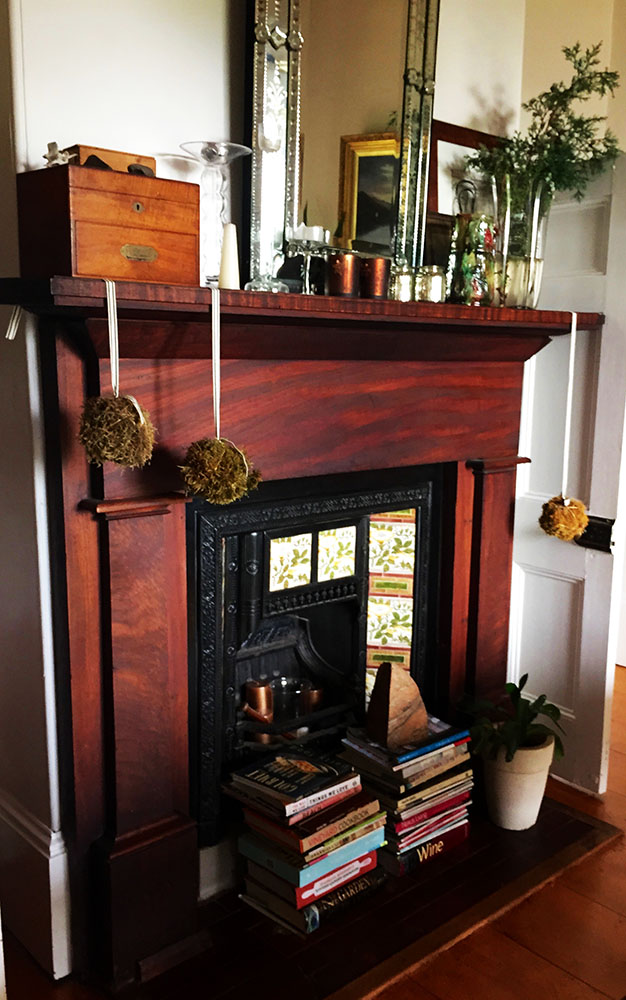
Light my fire
I’m warning you: Twamley is not your usual tourist experience. It’s a working farm. Nothing is organised – the experiences are up to the guests. And as authentic as possible. One can pick herbs, muck around in the vegie patch, feel part of the family.
Want to see the farming side? Take a tour of the shearing shed? A brisk walk that takes in the surrounding hills and vistas? No problem. Elizabeth, whose children are the precious sixth generation, will arrange. Just want to chill? Stay in the pod – a beautiful eco-building that’s self-contained and almost smiles as you enter.
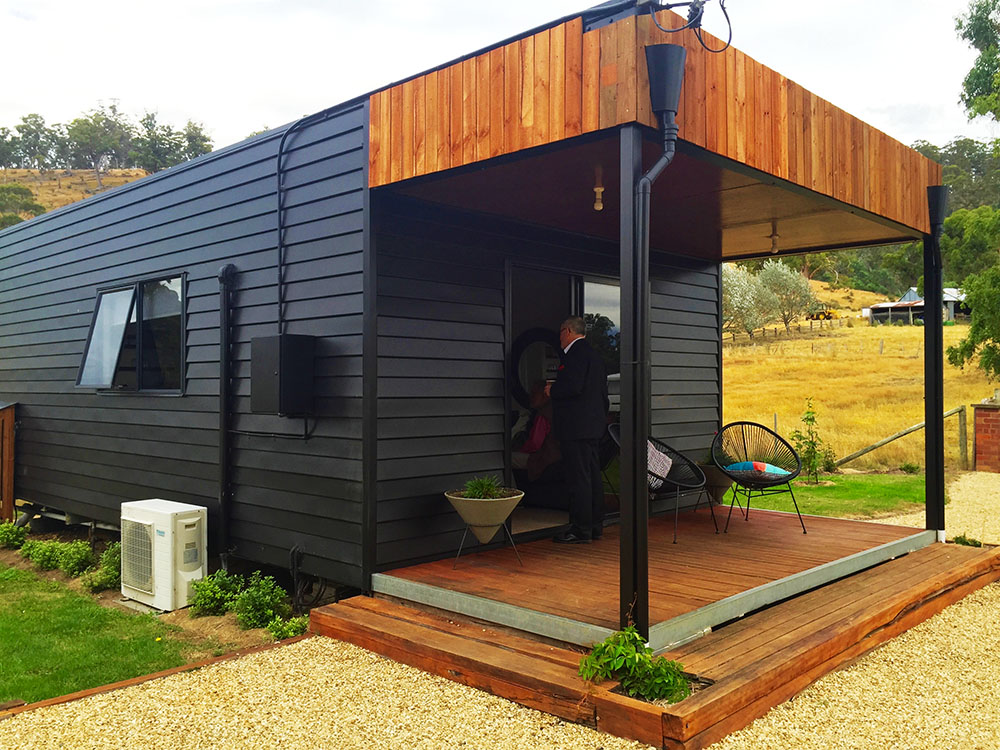
Twamley the Pod
The Turveys, buoyed by growing visitor numbers, are planning to host weddings, events, and down the road, glamping. I should also probably mention that one of the guests’ favourite walks is ‘Charlie’s Hill’ (and not the aforementioned Black Charlie! So the story unfolds: There was a white Charlie. In fact Charlie’s Hill was named after Charlie Clarkson, a shepherd from a neighbouring farm, who used a distinctive call, “ho-wo” when calling his sheep). At the top of his hill is a lookout and guests come upon a bush cupboard that conceals a bottle of good port and glasses to savour it. I feel like Alice – ‘Drink me’!
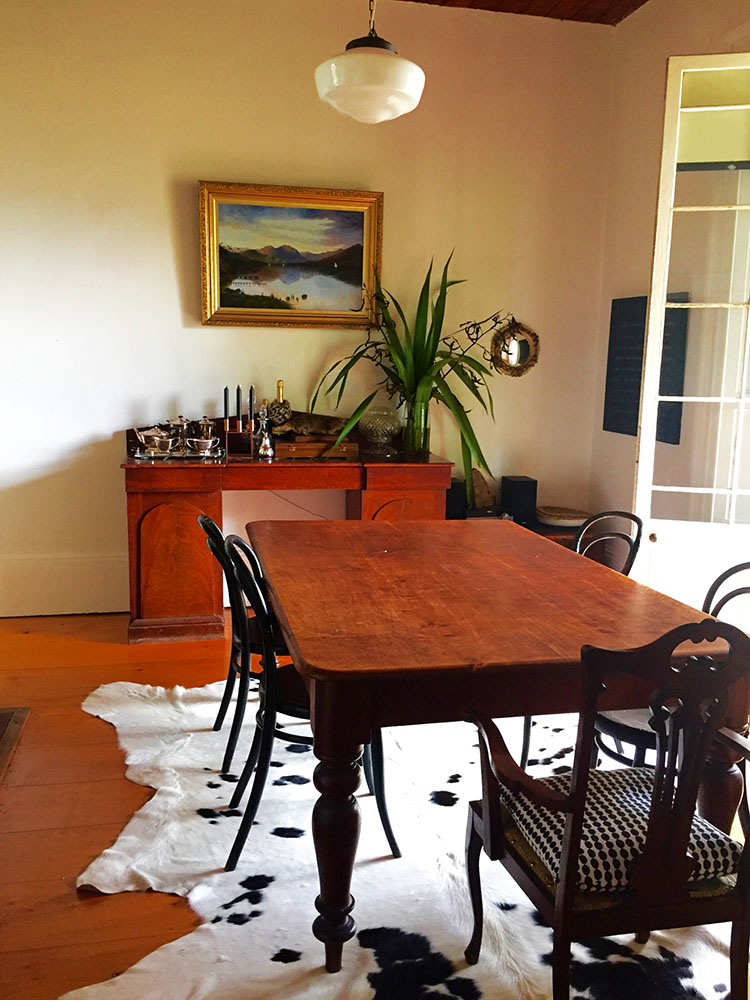
Dining with history at Twamley
As I move around the house taking in the history before it’s time to go, I notice some photos of a handsome couple over the internal stairs that lead to a cellar. Elizabeth informs me that’s the original Frank and Elizabeth, who must watch over this latest iteration of their farm with bemusement.
They look happy, and proud, as do their descendants. As my car sails past the hills and Black Charlie, I chuckle to myself, and make a mental note: find out who the hell was Black Charlie?
*Later I find that Black Charlie is no laughing matter. He was an Aboriginal member of a chain gang breaking rocks for roads on the Prosser plains in the 1830’s. He was known for being particularly distressed by this incarceration and punishment. A shocking reminder of our brutal past, and somehow his name on that sign humanises that era. I salute you, Black Charlie, for standing up for your rights.
Chrissie

